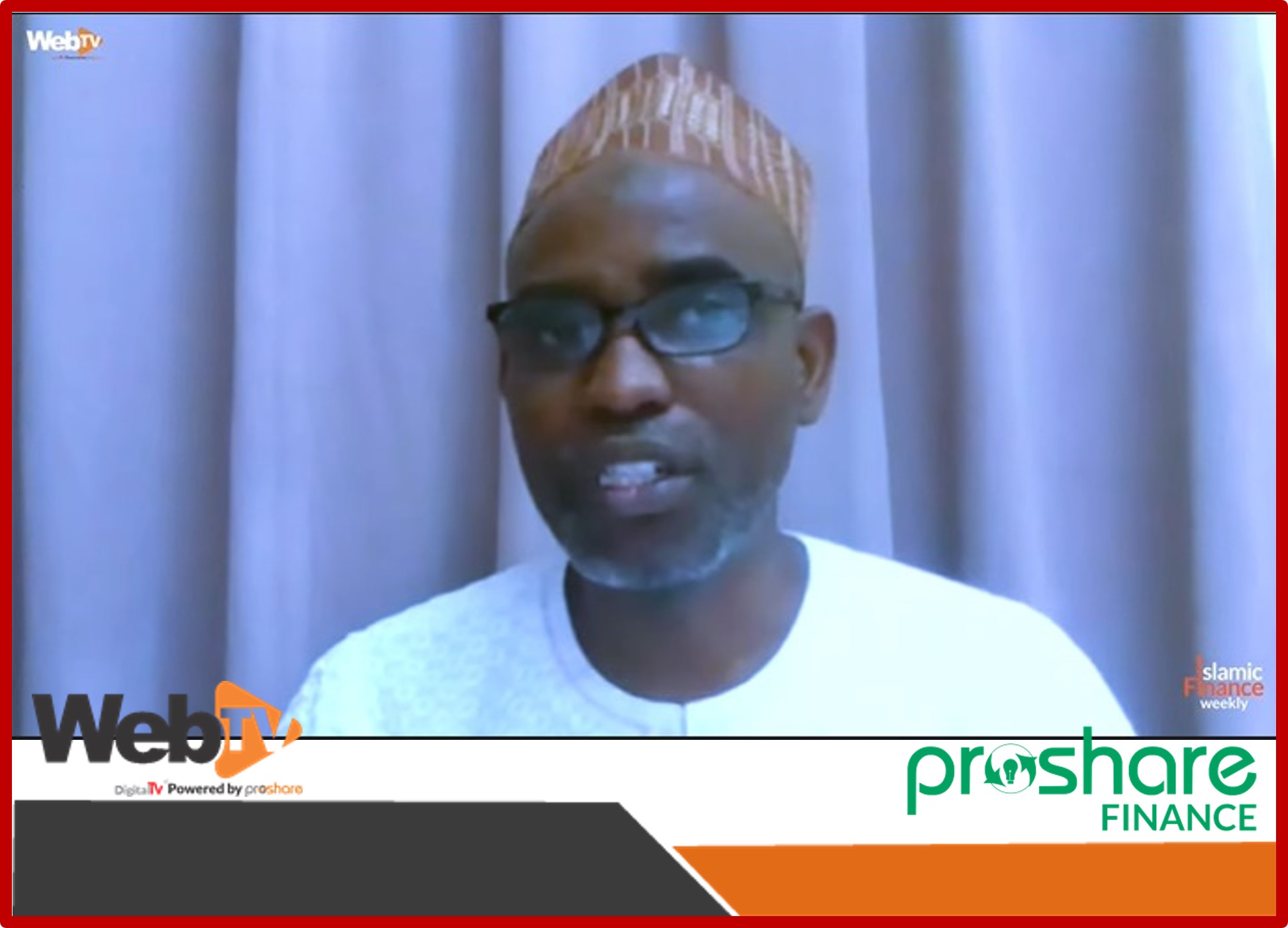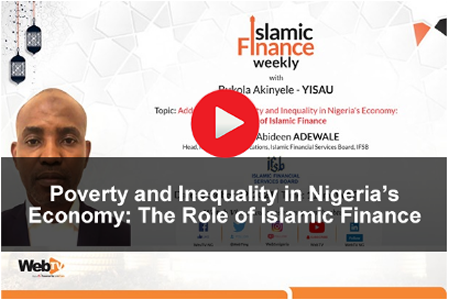Friday, October 29, 2021 / 11:40 AM / By Bukola Akinyele-Yisau for WebTV/ Header Image Credit: WebTV
Poverty is oneof the biggest threats to Nigeria's social stability, but it can be reducedthrough the activities of Islamic Finance cooperatives, Islamic microfinance and Islamic social finance platforms. Dr. Abideen Adewale, Head,Research and Publications, Islamic Financial Services Board (IFSB) madethe point while discussing "Poverty and Inequality in Nigeria's Economy: TheRole of Islamic Finance".
Speaking on the concept ofpoverty, Adewale said it has led to hopelessness and provoked desperateacts. According to him poverty and inequality are responsible for apathy,economic exclusion and the spate of violence in the country.
The IFSB official said inequalityis about denial of fair and equivalent enjoyment of rights, and the persistenceof arbitrary discrepancies in the worth, status, dignity, and freedoms ofdifferent people.
He listed other dimensionsto inequality to include: political inequality, social inequality, genderInequality and educational inequality.
According to him, poverty can beviewed from the Islamic context of "fuqaraa" (the poor) and "masakeen" (the needy).
He noted that poverty was astatic phenomenon which moves from one generation to another. He said whendesigning Islamic finance to play a role in addressing poverty , theconceptualization should be in the light of "masakeen"
Giving a presentation on povertyand inequality indices in Nigeria, the expert cited the Ntional Bureau ofStatistics (NBS) 2019 index which showed that over 40.1% ofNigerians are poor.
Reviewing the role of Islamicfinance, he explained that the Islamic development bank has come up with aneconomic empowerment paradigm, that views poverty in member countries from sixobstacles:
- Lack of access to well designed & profitable project opportunities
- Low social capital for the poor to build intelligent partnerships that support his/her economic activities
- Lack of sufficient affordable infrastructure that support economic activities
- Lack of access to Finance
- Lack of capacity and weak belief in self-potential and
- Lack of access to relevant markets
According to him, the areas thatIslamic finance can support socio-economic activities are the following:
- The linkage to real economic activities that promotes shared prosperity via the acquisition of the sustainable livelihood assets. (human capital, social capital, physical capital, natural capital, psychological capital)
- General low level of financial citizenship, especially among the youths and women (family empowerment).
- Huge potentials in the Islamic Fintech space
- Untapped Islamic social finance platform and potentials
- Huge infrastructure deficit ( potential for the use of Sukuk)
- Extant regulatory support and guidelines
- Opportunities for requisite human capital development (IIUM, INCEIF, IIIBF, BUK).
On the side of the IsDB EconomicEmpowerment Approach, according to him, there are 7 fundamentals toenable the disadvantaged population, play an active role in the economiccycles in their countries.
- Considering the poor as an Economic Actor
- Access to Relevant Market within Nigeria and abroad
- Investment opportunities
- Supporting Infrastructure
- Appropriate Funding
- Smart Partnerships
- Building Capacity
Dr. Adewale gave insight into theproposed Islamic finance-based poverty alleviation model. He explained that thegovernment and private sector would need to deepen collaboration to move theeconomy forward.
Related Video
Related News
- Why AfDB Should Integrate Islamic Finance in its Economic Agenda for Africa
- Islamic Estate Planning: Protect your Family and Leave a Legacy
- Non-Interest Finance should Support Economic Sectors that Have Major Social Impact
- Stakeholders Examine the Role of Islamic Banking and Finance in Stabilizing Nigeria's Economy
- How Takaful Can Deepen Insurance Penetration in Nigeria
- Nigeria Needs an Intellectual Property Policy that Supports Non-Interest Finance
- Ethical Investments Rise as Market Cap of Shariah-Compliant Stocks in Nigeria Stand at N11.3trn
- Nigerian Insurance Needs Tailor-Made Takaful Products For Households, MSMEs - NAICOM
- Net Asset Value of Shariah-Compliant Funds in Nigeria Grew by 174% between 2019 and 2021
 Lagos, NG • GMT +1
Lagos, NG • GMT +1











 2198 views
2198 views










 Sponsored Ad
Sponsored Ad
 Advertise with Us
Advertise with Us







